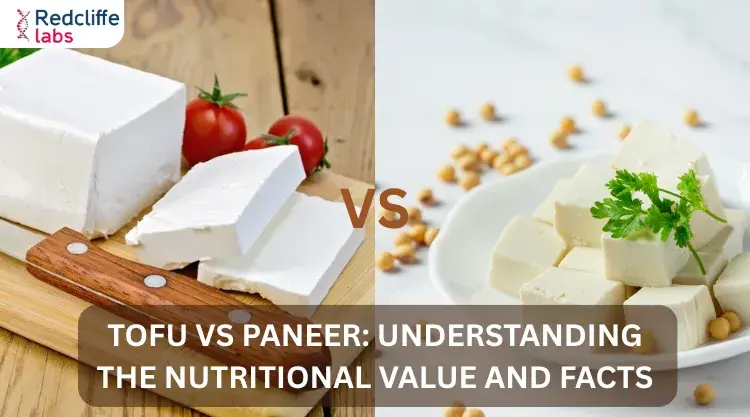Calories in An Avocado: Nutrients & Health Benefits!

Medically Reviewed By
Prof. Ashok Rattan
Written By Muskan Taneja
on Nov 29, 2024
Last Edit Made By Muskan Taneja
on Jul 19, 2025

People are moving more and more toward a healthier lifestyle, which urges the market for avocados in India to expand. India imports avocados from Tanzania, Peru, and the US and the cost ranges from INR 100-2000 per kg. However, the price differs depending on the city.
Avocado is rich in nutrients, vitamins, minerals, and calories. These calories in an avocado keep one full throughout the day and prevent overeating. A medium-sized avocado contains 240 calories, while calories in ½ avocado is about 100 grams. Nonetheless, the size differs based on the type of avocado. Along with calories, it has other healthy nutrients that help maintain a stable weight and GI levels.
Let’s understand the origin of avocado.
The scientific name of avocado is ‘Persea Americana.’ There was a time when only Guacamole (a popular avocado dip) was famous for avocado. However, nowadays, it has become a household food in parts of the world. Avocados natively originated from Mexico and Central America. Avocados differ in terms of size, color, and shape. Because of its nutritional value and calories, India imports avocados from different parts of the world, especially from Tanzania, Peru, and the US.
Do You Know?
A medium avocado has 487 mg of potassium, while a medium-sized banana has 422 mg of potassium.
Calories in An avocado
Avocados are pear-shaped fruits with a creamy green texture and a stone in between. The most common one is the Hass Avocado. Calories in an avocado differ based on size. Here is a breakdown of fats and calories in an avocado.
- Calories in an avocado are 250 calories, and fats are 23 grams.
- Calories in ½ avocado are 130, and fats are 12 grams.
- Calories in an avocado slice differ:
- 80 calories in ⅓ of an avocado.
- 50 calories in ⅕ of an avocado.
Along with calories and fats, avocado is rich in nutrients, vitamins, and minerals. Here is the nutritional value of avocado.
Nutritional Value of Avocado
Here is a breakdown of calories in avocado 100g.
G- grams, mg- milligrams, and mcg- micrograms
|
Nutrient |
Amount (per 100 grams) |
|
Calories |
160 |
|
Fat |
14.7 g |
|
Sodium |
7 mg |
|
Fiber |
6.7 g |
|
Sugar |
0.7 g |
|
Protein |
2 g |
|
Carbohydrates |
8.5 g |
|
Zinc |
0.64 mg |
|
Copper |
0.19 mg |
|
Folate |
81 mg |
|
Potassium |
485 mg |
|
Magnesium |
29 mg |
|
manganese |
0.14 mg |
|
Choline |
14.2 mg |
|
Vitamin A |
7 mcg |
|
Vitamin B2 |
0.13 mg |
|
Vitamin B3 |
1.74 mg |
|
Vitamin B5 |
1.39 mg |
|
Vitamin B6 |
0.26 mg |
|
Vitamin B12 |
0 mg |
|
Vitamin C |
10 mg |
|
Vitamin D |
0 mg |
|
Vitamin E |
2.07 mg |
|
Vitamin K |
21 mcg |
A Popular Misconception:
There is a range of misconceptions about avocados. Some consider it a vegetable, while others believe it a fruit. What do you think, is avocado a fruit or a vegetable?
People often consider avocados a vegetable because of their nutritional and culinary value. However, avocados are fruits that originated from seeds. They contain nutrients, vitamins, and minerals.
Health Benefits of Avocado
Avocado contains saturated fats, fibers, protein, and other nutrients. This nutrient compound makes the fruit a healthy option. They are commonly eaten as sandwiches, tacos, smoothies, toast, and salad. The protein and fiber in Avocado make it a healthy-fulfilling snack. Studies found several health benefits of avocado. Let’s understand the effective benefits of avocados.
-
Avocado Improves Heart Health
Avocados contain healthy saturated fats that reduce cholesterol, one of the biggest reasons for heart attacks or heart-related diseases. Research claims that avocados have anti-oxidant properties that help maintain inflammation. Controlled inflammation, blood pressure, sugar levels, and cholesterol reduce the risk of heart disease.
-
Avocado Aids in Weight Loss
Calories in an avocado don’t promote weight gain. Instead, they lower low-density lipoprotein (LDL) and increase high-density lipoprotein (HDL). The green and creamy texture of avocado gives a savory taste from healthy fats, making it a fulfilling meal. Studies show that avocado consumption helps lower BMI and maintain body shape. A few dieticians suggest that consuming one avocado in a day helps reduce weight.
-
Avocado Cut Downs Symptoms of Arthritis
Studies have shown that avocados may cut down the symptoms of arthritis. Arthritis is simply a deterioration of the joint cartilage, mostly affecting our knee and hip joints. Avocado is a supplement made from avocado oil that aids in cutting down arthritis symptoms.
-
Avocado Helps In Maintaining Diabetes
Avocado has a low or near-to-zero glycemic index (GI), which helps maintain blood sugar levels. A stable or low blood sugar level helps prevent diabetes. Avocados are healthy for people with diabetes. Studies show avocado consumption improves metabolic health, especially in people with type 2 diabetes.
-
Avocado Prevents Risks Of Cancer
Studies show that avocado seeds may prevent cancer. However, the recommendation to eat avocado is not clear. So, consult your doctor or dietitian for a better understanding.
-
Avocado Lower Risk of Metabolic Syndrome
Avocados maintain overall weight. A study by the National Health and Nutrition Examination Survey (NHANES) claims that they may lower the risk of metabolic syndrome. However, researchers need to conduct more studies.
How to store avocado?
The market sells avocados with hard, unripe flesh. It will ripen in 2-3 days. However, you can put it under the sun for a speedy process. Another way to store it is to place an avocado in a sealed paper bag with a banana. Ethylene gas in bananas helps speed ripening. Another step is to store ½ avocados with sliced onions in a tight-sealed container. Onions contain sulfur, which helps avocados preserve them longer.
If you want a slow ripening of avocados, follow these steps:
- Cover the flesh of avocados with lemon juice or lemon.
- To safeguard its freshness by minimizing exposure to oxygen, wrap the flesh in plastic wrap, seal it in a container, and store it in the refrigerator.
How to Prepare an avocado?
Some people often find it difficult to cut an avocado. Removing seeds from avocados isn’t as challenging as it may appear. A popular way to cut and remove seeds is by stabbing a knife in the middle of the avocado and removing the seed. Nonetheless, this is a traditional method. Here is another way you can cut an avocado:
- Place your middle and index finger on both sides of the seed’s flesh.
- Place your thumb behind the avocado skin and push the center with your thumb until the seed comes out.
- Later, cut, slice, and mash the green flesh.
10 Healthy and Delicious Avocado Recipes
Avocado salads and sandwiches are popular and common. Yet, there is no limit to it. You can prepare nutritious and delicious meals with avocado. Here are ten avocado recipes to choose from as an alternative to junk food.
- Ultra-creamy avocado smoothie
- Baked avocado chips
- Inside-out stuffed avocados
- Avocado bread
- Avocado deviled eggs
- Avocado truffles
- Pickled avocados
- Avocado ranch dressing
- No-bake avocado cheesecake
- Cupcake with avocado buttercream
Tips to Enjoy Eating Avocado
You can add avocado, which has a nutty flavor, to your daily diet. The nutrition and calories in an avocado help keep you fulfilling throughout the day. You can add avocado to your breakfast, lunch, or dinner. Here is what you can do:
For Breakfast
- Instead of butter, apply a layer of mashed avocado on toast.
- Have diced avocado with scrambled eggs.
- Mix an egg in half avocado and bake it at 425 degrees for around 20 minutes.
For Dinner or Lunch
- Prepare a tuna or chicken salad and mix diced avocado.
- Opt for avocado puree into a baked potato.
- Add avocado sauce to the pasta instead of white sauce or red sauce.
- Add avocado slices to your choice of burger and enjoy.
How Much Avocado is Healthy?
Avocado consumption completely depends on the reason you begin eating avocado. If you follow a keto diet, consume more than one avocado daily because the healthy fats and nutrients in avocado help keep you fulfilling. Calories in an avocado helps in keeping one full. Additionally, it makes space for other healthy sources and proteins, such as olive oils, seeds, and nuts. These healthy fats and calories in an avocado provide enormous benefits.
Why is avocado not good for you?
Avocado is rich in nutrients, healthy fats, and protein. However, excessive consumption may have severe side effects on your body. It is essential to have avocado in a moderate amount to help prevent side effects. Excessive consumption may lead to:
- Weight gain
- Allergy
- Blood thinners
- Severe life-threatening diseases, such as
- Liver diseases
- Intestinal problems
- Obesity
- Negative effects on medications
- Breastfeeding mothers should avoid avocados.
Key Takeaways
Avocados are healthy and nutritious fruits. It is rich in fiber, reducing inflammation and heart disease risk. Calories in an avocado are healthy fats that prevent weight gain and improve metabolism. Remember, excessive consumption of an avocado may have negative effects on the body.
Leave a comment
2 Comments
Tim C Dolan
Dec 2, 2024 at 2:44 PM.
I eat one avocado a week hope that doesn't do anything I need a lot more but I don't want anything to happen to my body
Myhealth Team
Dec 4, 2024 at 8:01 AM.
Eating one avocado a week is generally safe and healthy for most people. Avocados are rich in healthy fats, vitamins, and fiber, which can benefit your heart, skin, and overall health. As long as you're consuming them in moderation and as part of a balanced diet, it shouldn't cause any issues.
Roland Celestin
Nov 30, 2024 at 11:35 PM.
That’s my favorite thing to eat everyday, never refuse eating avocado!!!…
Myhealth Team
Dec 4, 2024 at 8:05 AM.
That's good to know.



